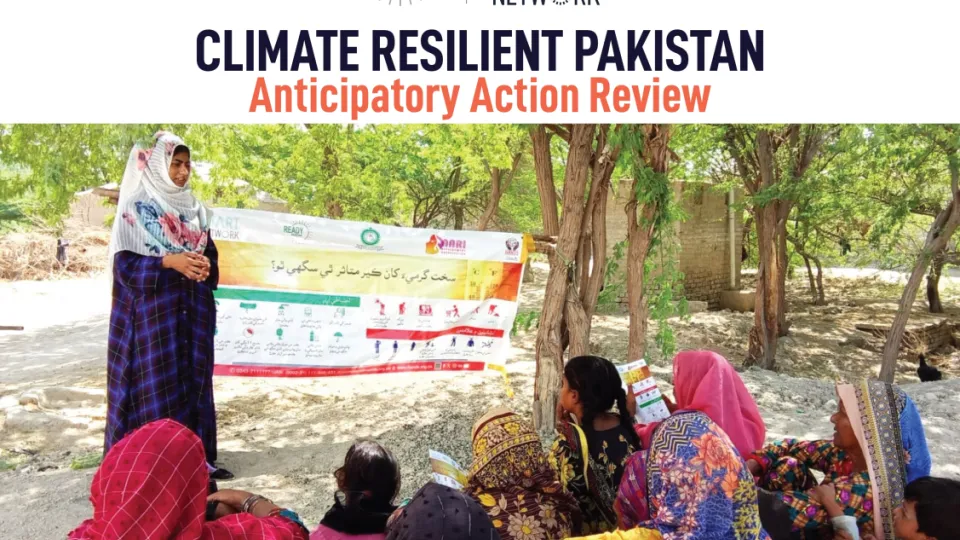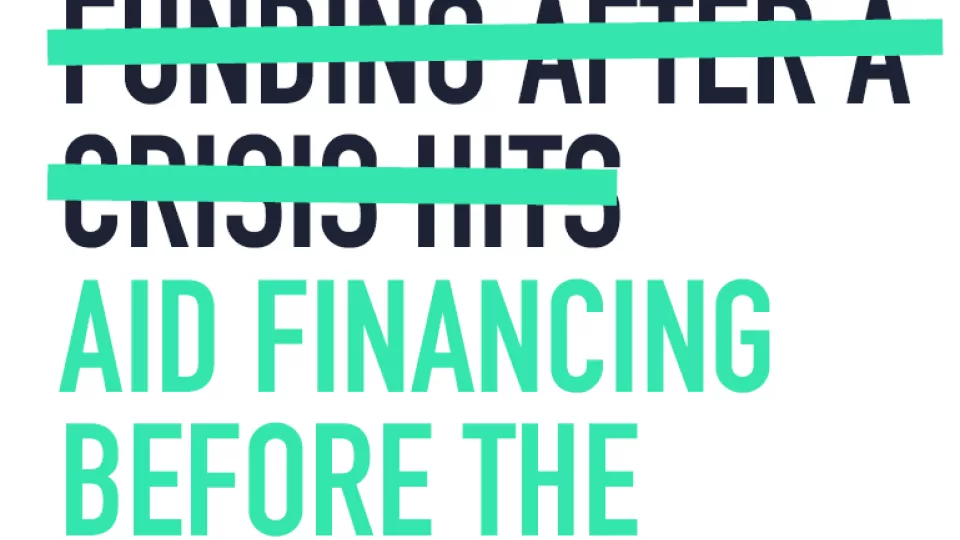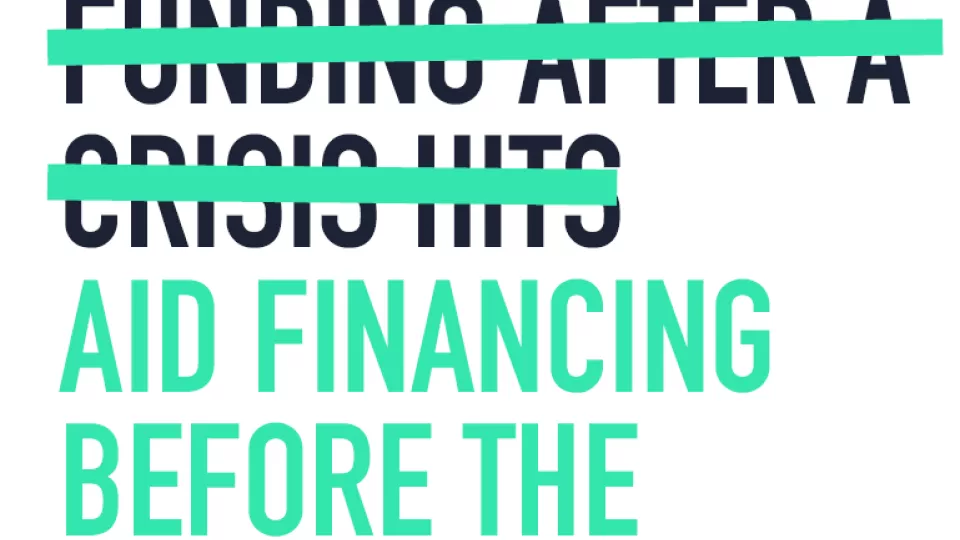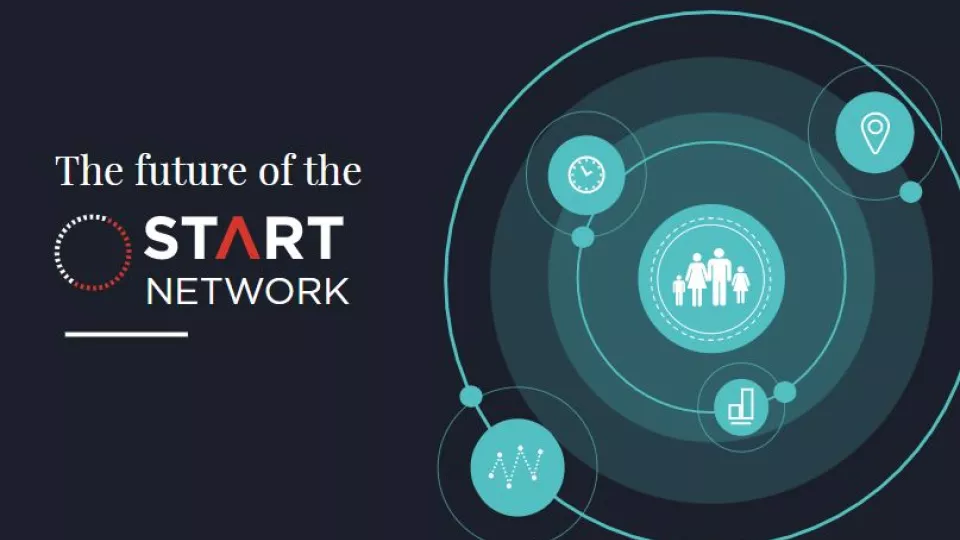
Climate Resilient Pakistan: Anticipatory Action Review
This publication explores the urgent climate challenges faced by Pakistan, one of the world's most vulnerable countries to climate impacts.

This publication explores the urgent climate challenges faced by Pakistan, one of the world's most vulnerable countries to climate impacts.

This report is the first of its kind on anticipatory action and collates voices of communities, shares their experiences and needs, prior to predictable risks. Some of our findings include; people demand the right to have access to timely, appropriate and accurate information to help keep themselves and their families safe, prior to crises. They also have the right to give feedback about humanitarian assistance.

En 2020, Start Network llevó a cabo una encuesta entre 98 organizaciones locales y nacionales (75 hombres y 23 mujeres de 32 países) que se habían asociado previamente con Start Network o con un miembro de Start Network. El objetivo de la encuesta era comprender mejor el funcionamiento de las asociaciones. La encuesta pretendía identificar los retos y las oportunidades de las asociaciones de colaboración e igualdad entre los miembros de Start Network y los socios locales. El 94 % de los socios locales consideró que la interacción fue “muy positiva” o “positiva”, sin embargo, la mayoría (86 %) también consideró que había más cosas que Start Network o los miembros de Start Network deberían hacer para construir una relación más fuerte. Lea el resumen ejecutivo en bangla, francés, indonesio, inglés y urdu

The Anticipatory Action Task Force (AATF) brings together the key agencies implementing anticipatory action on the ground. The AATF draws on a wealth of experience from implementing anticipatory action initiatives in over 60 countries. The mission of the AATF is to promote the use of anticipatory humanitarian action to risks1 . The taskforce also supports evidence-based policies that make anticipatory action possible.

Acting prior to a predictable hazard in order to safeguard lives and livelihoods, to reduce human suffering and losses and damages, is a faster, more efficient and more dignified response.
A new series of technical discussion papers by the Start Network, the Red Cross Red Crescent Climate Centre and the International Federation of Red Cross and Red Crescent Societies explores how evolving disaster risk financing (DRF) approaches could be a game changer in acting earlier, quicker and more effectively to predictable humanitarian crises. The papers are attempting to redefine how DRF meets humanitarian objectives. Building on the practical experience of the Start Network and IFRC the papers call for a move from the traditional DRF sovereign approach to a more human-impact driven approach to risk financing, identifying the financial and operational needs from the ground up; an ‘impact before instruments approach. Each paper explores the need for such a renewed approach whilst identifying some of the technical challenges and posing solutions to make disaster risk financing work most effectively in the humanitarian context. The aim is to ignite dialogue and build collaboration around key technical challenges whilst highlighting some key solutions to unlock the potential of DRF for humanitarian action.
Most disasters are not unpredictable, but treating them as such leads to critical opportunities to save lives and build long term resilience being missed.

To prepare for the change needed in the future, the Start Network’s 42 members came together over the last six months, to co-create a vision for the network, called Start Evolves, based on experience gained over our first eight years. This proposal was unanimously endorsed by our membership in November 2017.
A new publication from the Shifting the Power project looks at whether and how INGOs following their own rhetoric of localising humanitarian aid.
More than 130 participants from national and international civil society organisations, donors, UN agencies and government officials attended the conference to explore what an ideal future for humanitarian action in Pakistan might look like and how we might reorient ourselves to get there.